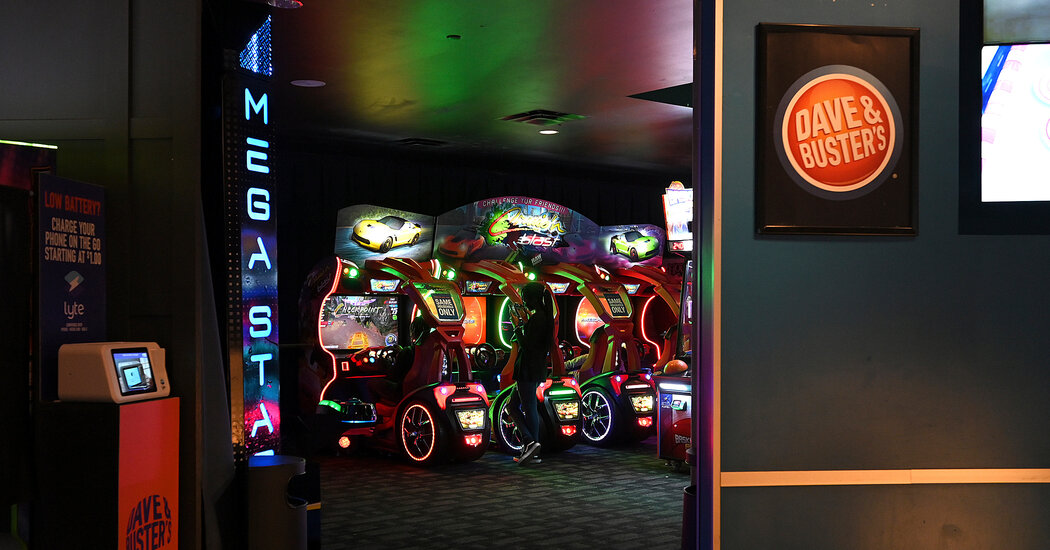The restaurant and arcade chain Dave & Buster’s is going to let customers bet on arcade games, according to an announcement on Tuesday.
Customers will be able to digitally place cash bets at the arcades, where people play games like Skee-Ball, billiards and basketball shootouts.
A technology company, Lucra, is teaming up with Dave & Buster’s to provide the digital betting service.
Michael Madding, Lucra’s chief operating officer, said in an interview on Wednesday that the company’s product would be used for “skill-based” games at Dave & Buster’s, including “recreational activities for which the outcome is largely or entirely dependent on the knowledge, ability, strength, speed, endurance, intelligence of the participants and is subject to the control of those participants.”
Dave & Buster’s did not respond to requests for comment, and it was not clear which specific games customers would be able to place bets on, or when the company would roll out the betting product, which will be available to people enrolled in the Dave & Buster’s loyalty program.
Mr. Madding said that Lucra’s products are available to people 18 and older and that the company allows its partners and consumers to set limits “based on their needs and preferences.” “Our typical average contest size for Lucra’s technology is around $5 to $10,” he said.
On social media, people poked fun at the announcement, joking, for example, about whether customers might bet on such games as Skee-Ball. The age policies vary at each Dave & Buster’s location, but generally people under 18 years old can enter with a guardian.
Marc Edelman, a law professor and the director of sports ethics at Baruch College in New York, said there is a carve-out in gambling laws that allows for people who are engaging in a physical competition to compete for money in that competition. For example, professional golfers and tennis players pay an entry fee to compete and can win a cash prize.
“If two people are competing against one another in Skee-Ball, presuming that there is nothing unusual done in the Skee-Ball game and physical skill is actually going to determine the winner, there is no problem,” Professor Edelman said.
The trouble lies in people betting on others’ games. “If I am taking a bet on whether someone else will win a Skee-Ball game, or whether someone else will achieve a particular score in Skee-Ball, if I myself am not engaged in a physical competition, that very likely would be seen as gambling,” Professor Edelman said.
There are 164 Dave & Buster’s locations in North America, and it was not clear how many would allow betting.
Dr. Lia Nower, director of the Center for Gambling Studies at Rutgers University, said that she was concerned about children who go to Dave & Buster’s being exposed to people placing bets, which she said could lead to gambling addiction.
“The younger people begin doing these things and the more types of things they do, the more likely down the road they are to experience problems,” Dr. Nower said. “And so by allowing more and more of this to take place, we’re setting up our younger generation for problems that we have not put the safeguards in place to take care of.”




